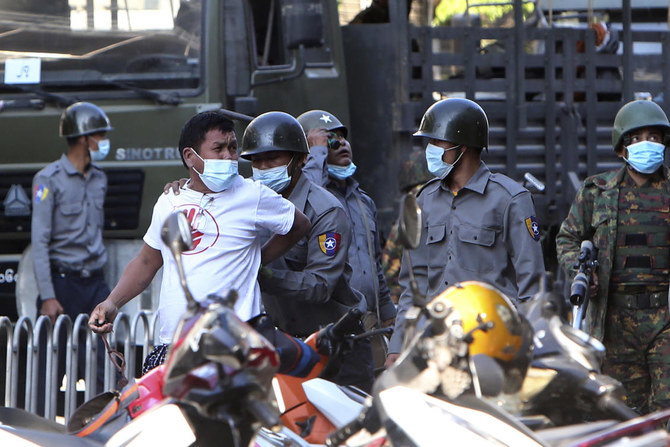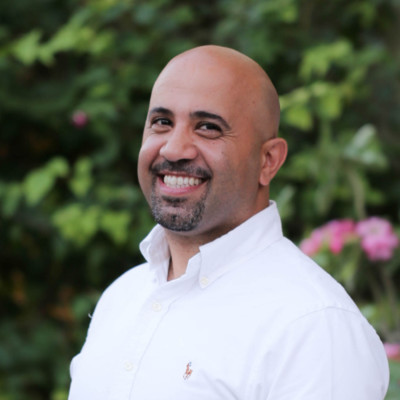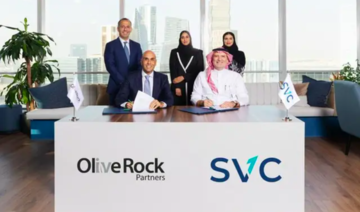BANGKOK: The escalation of violence in Myanmar as authorities crack down on protests against the Feb. 1 coup is raising pressure for more sanctions against the junta, even as countries struggle over how to best sway military leaders inured to global condemnation.
The challenge is made doubly difficult by fears of harming ordinary citizens who were already suffering from an economic slump worsened by the pandemic but are braving risks of arrest and injury to voice outrage over the military takeover. Still, activists and experts say there are ways to ramp up pressure on the regime, especially by cutting off sources of funding and access to the tools of repression.
The UN special envoy on Friday urged the Security Council to act to quell junta violence that this week killed about 50 demonstrators and injured scores more.
“There is an urgency for collective action,” Christine Schraner Burgener told the meeting. “How much more can we allow the Myanmar military to get away with?“
Coordinated UN action is difficult, however, since permanent Security Council members China and Russia would almost certainly veto it. Myanmar’s neighbors, its biggest trading partners and sources of investment, are likewise reluctant to resort to sanctions.
Some piecemeal actions have already been taken. The US, Britain and Canada have tightened various restrictions on Myanmar’s army, their family members and other top leaders of the junta. The US blocked an attempt by the military to access more than $1 billion in Myanmar central bank funds being held in the US, the State Department confirmed Friday.
But most economic interests of the military remain “largely unchallenged,” Thomas Andrews, the UN special rapporteur on the rights situation in Myanmar, said in a report issued last week. Some governments have halted aid and the World Bank said it suspended funding and was reviewing its programs.
Its unclear whether the sanctions imposed so far, although symbolically important, will have much ímpact. Schraner Burgener told UN correspondents that the army shrugged off a warning of possible “huge strong measures” against the coup with the reply that, “‘We are used to sanctions and we survived those sanctions in the past.’”
Andrews and other experts and human rights activists are calling for a ban on dealings with the many Myanmar companies associated with the military and an embargo on arms and technology, products and services that can be used by the authorities for surveillance and violence.
The activist group Justice for Myanmar issued a list of dozens of foreign companies that it says have supplied such potential tools of repression to the government, which is now entirely under military control.
It cited budget documents for the Ministry of Home Affairs and Ministry of Transport and Communications that show purchases of forensic data, tracking, password recovery, drones and other equipment from the US, Israel, EU, Japan and other countries. Such technologies can have benign or even beneficial uses, such as fighting human trafficking. But they also are being used to track down protesters, both online and offline.
Restricting dealings with military-dominated conglomerates including Myanmar Economic Corp., Myanmar Economic Holdings Ltd. and Myanmar Oil and Gas Enterprise might also pack more punch, with a minimal impact on small, private companies and individuals.
One idea gaining support is to prevent the junta from accessing vital oil and gas revenues paid into and held in banks outside the country, Chris Sidoti, a former member of the UN Independent International Fact-Finding Mission on Myanmar, said in a news conference on Thursday.
Oil and gas are Myanmar’s biggest exports and a crucial source of foreign exchange needed to pay for imports. The country’s $1.4 billion oil and gas and mining industries account for more than a third of exports and a large share of tax revenue.
“The money supply has to be cut off. That’s the most urgent priority and the most direct step that can be taken,” said Sidoti, one of the founding members of a newly established international group called the Special Advisory Council for Myanmar.
Unfortunately, such measures can take commitment and time, and “time is not on the side of the people of Myanmar at a time when these atrocities are being committed,” he said.
Myanmar’s economy languished in isolation after a coup in 1962. Many of the sanctions imposed by Western governments in the decades that followed were lifted after the country began its troubled transition toward democracy in 2011. Some of those restrictions were restored after the army’s brutal operations in 2017 against the Rohingya Muslim minority in Myanmar’s northwest Rakhine state.
The European Union has said it is reviewing its policies and stands ready to adopt restrictive measures against those directly responsible for the coup. Japan, likewise, has said it is considering what to do.
The Association of Southeast Asian Nations, or ASEAN, convened a virtual meeting on March 2 to discuss Myanmar. Its chairman later issued a statement calling for an end to violence and for talks to try to reach a peaceful settlement.
But ASEAN admitted Myanmar as a member in 1997, long before the military, known as the Tatmadaw, initiated reforms that helped elect a quasi-civilian government led by Aung San Suu Kyi. Most ASEAN governments have authoritarian leaders or one-party rule. By tradition, they are committed to consensus and non interference in each others’ internal affairs.
While they lack an appetite for sanctions, some ASEAN governments have vehemently condemned the coup and the ensuing arrests and killings.
Marzuki Darusman, an Indonesian lawyer and former chair of the Fact-Finding Mission that Sidoti joined, said he believes the spiraling, brutal violence against protesters has shaken ASEAN’s stance that the crisis is purely an internal matter.
“ASEAN considers it imperative that it play a role in resolving the crisis in Myanmar,” Darusman said.
Thailand, with a 2,400 kilometer (1,500-mile)-long border with Myanmar and more than 2 million Myanmar migrant workers, does not want more to flee into its territory, especially at a time when it is still battling the pandemic.
Kavi Chongkittavorn, a senior fellow at Chulalongkorn University’s Institute of Security and International Studies, also believes ASEAN wants to see a return to a civilian government in Myanmar and would be best off adopting a “carrot and stick” approach.
But the greatest hope, he said, is with the protesters.
On Saturday, some protesters expressed their disdain by pouring Myanmar Beer, a local brand made by a military-linked company whose Japanese partner Kirin Holdings is withdrawing from, on people’s feet — considered a grave insult in some parts of Asia.
“The Myanmar people are very brave. This is the No. 1 pressure on the country,” Chongkittavorn said in a seminar held by the East-West Center in Hawaii. “It’s very clear the junta also knows what they need to do to move ahead, otherwise sanctions will be much more severe.”
Escalating violence ups pressure for Myanmar sanctions
Escalating violence ups pressure for Myanmar sanctions

- The UN special envoy urged the Security Council to act to quell junta violence that this week killed about 50 demonstrators
Meituan looks to hire in Saudi Arabia, indicating food delivery expansion

SHANGHAI: Chinese food delivery giant Meituan is seeking to hire staff for at least eight positions based in Riyadh, in a sign it may be looking to Saudi Arabia to further its global expansion ambitions, according to Reuters.
The jobs ads, which is hiring for KeeTa, the brand name Meituan uses for its food delivery operations in Hong Kong, is seeking candidates with expertise in business development, user acquisition, and customer retention, according to posts seen by Reuters on Linkedin and on Middle Eastern jobs site Bayt.com.
Meituan did not immediately respond to a request for comment by Reuters on its plans for Saudi expansion.
Bloomberg reported earlier on Friday that the Beijing-based firm would make its Middle East debut with Riyadh as the first stop.
Since expanding to Hong Kong in May 2023, Meituan’s first foray outside of mainland China, speculation has persisted that its overseas march would continue as the firm searches for growth opportunities, with the Middle East rumored since last year to be one area of possible expansion.
“We are actively evaluating opportunities in other markets,“ Meituan CEO Wang Xing said during a post-earnings call with analysts last month.
“We have the tech know-how and operational know-how, so we are quietly confident we can enter a new market and find an approach that works for consumers there.”
IMF opens first MENA office in Riyadh

RIYADH: The International Monetary Fund has opened its first office the Middle East and North Africa region in Riyadh.
The office was launched during the Joint Regional Conference on Industrial Policy for Diversification, jointly organized by the IMF and the Ministry of Finance, on April 24.
The new office aims to strengthen capacity building, regional surveillance, and outreach to foster stability, growth, and regional integration, thereby promoting partnerships in the Middle East and beyond, according to the Saudi Press Agency.
Additionally, the office will facilitate closer collaboration between the IMF and regional institutions, governments, and other stakeholders, the SPA report noted, adding that the IMF expressed its appreciation to Saudi Arabia for its financial contribution aimed at enhancing capacity development in its member countries, including fragile states.
Abdoul Aziz Wane, a seasoned IMF director with an extensive understanding of the institution and a broad network of policymakers and academics worldwide, will serve as the first director of the Riyadh office.
Saudi minister to deliver keynote speech at Automechanika Riyadh conference

RIYADH: Saudi Arabia’s Deputy Minister of Investment Transaction Saleh Al-Khabti is set to deliver the keynote speech at a global automotive aftermarket industry conference in Riyadh.
Set to be held from April 30 April to May 2 in the Saudi capital’s International Convention and Exhibition Center, Automechanika Riyadh will welcome more than 340 exhibitors from over 25 countries.
Al-Khabti will make the marquee address on the first day of the event, which will also see participation from Aftab Ahmed, chief advisor for the Automotive Cluster at the National Industrial Development Centre, Ministry of Industry and Mineral Resources.
Saudi Arabia’s automotive sector is undergoing a transformation, with the Kingdom’s Public Investment Fund becoming the major shareholder in US-based electric vehicle manufacturer Lucid, and also striking a deal with Hyundai to collaborate on the construction of a $500 million-manufacturing facility.
Alongside this, Saudi Arabia’s Crown Prince Mohammed bin Salman launched the Kingdom’s first electric vehicle brand in November 2022.
Commenting on the upcoming trade show, Bilal Al-Barmawi, CEO and founder of 1st Arabia Trade Shows & Conferences, said: “It is a great honor for Automechanika Riyadh to be held under the patronage of the Saudi Arabian Ministry of Investment, and we’re grateful for their continued support as the event goes from strength-to-strength.
“The insights and support we’ve already received have been invaluable, and we look forward to continuing this relationship throughout the event and beyond.”
This edition of Automechanika Riyadh will feature seven product focus areas, including parts and components, tyres and batteries, and oils and lubricants.
Accessories and customizing, diagnostics and repairs, and body and paint will also be discussed, as well as care and wash.
Aly Hefny, show manager for Automechanika Riyadh, Messe Frankfurt Middle East, said: “The caliber of speakers confirmed to take part at Automechanika Riyadh is a testament to the event’s growth and prominence within the regional automotive market.
“We have developed a show that goes beyond the norm by providing a platform that supports knowledge sharing and networking while promoting the opportunity to engage with key industry experts and hear the latest developments, trends and innovations changing the dynamics of the automotive sector.”
Aramco-backed S-Oil expects Q2 refining margins to remain steady then trend upward

SEOUL: South Korea’s S-Oil forecast on Friday that second-quarter refining margins will be steady, supported by regular maintenance in the region, then trend upward in tandem with higher demand as the summer season gets underway, according to Reuters.
Over the January-March period, the refiner said it operated the crude distillation units at its 669,000-barrel-per-day oil refinery in the southeastern city of Ulsan at 91.9 percent of capacity, compared with 94 percent in October-December.
S-Oil, whose main shareholder is Saudi Aramco, plans to shut its No. 1 crude distillation unit sometime this year for maintenance, the company said in an earnings presentation, without specifying the time.
Venture investments spark renaissance of Saudi innovation

RIYADH: In Saudi Arabia, a dynamic transformation is unfolding within the entrepreneurial landscape, powered by the robust growth of venture capital, which achieved an impressive 86 percent compound annual growth rate from 2019 to 2023.
This financial infusion has been a game-changer, propelling the Kingdom past the $1 billion mark in venture capital investment last year and igniting a wave of innovative thinking among Saudi entrepreneurs.
Simply put, VC is a category of private market investment and financing. A VC firm raises capital from investors, referred to as Limited Partners, and uses that capital to fund promising startups they have determined as likely to have high growth potential in an emerging category.
A vibrant scene
“The rise of venture capital in Saudi Arabia is fueling a vibrant entrepreneurial scene,” said the founder of Saudi-based VC firm Nama Ventures.
Offering a unique perspective on this financial phenomenon, Mohammed Al-Zubi shared his insights with Arab News about how venture capital is energizing the entrepreneurial scene in the Kingdom.
Al-Zubi described this financial influx as a vital nutrient, fostering a fertile ground for innovation and growth within the Kingdom.

Ripple effects
“Startups get crucial funding, expert guidance, and exit pathways, attracting and retaining ambitious talent. This creates a ripple effect — successful ventures generate high-quality jobs, attracting more skilled professionals and expertise,” Al-Zubi told Arab News.
However, he explained that challenges like limited seed funding and skill mismatch require more attention.
“By fostering a diverse ecosystem and addressing these gaps, Saudi Arabia can harness the power of VC to build a thriving and sustainable entrepreneurial powerhouse,” Al-Zubi added.
Echoing Al-Zubi’s remarks, Tariq bin Hendi, senior partner at Global Ventures, told Arab News that the Kingdom’s VC growth reflects its booming economy.
“Saudi Arabia is a large market with compelling macroeconomics and significant funding, which in turn is re-shaping the regional startup landscape,” Hendi said.
“Increased investment has helped start-ups to digitize, scale and accelerate their business operations — with many success stories: Tarabut, Zension, RedSea, Zid and Hakbah being among the most well-known,” Hendi added.
An innovative economy
Hendi emphasizes the crucial role of venture capital in the economic diversification of Saudi Arabia.
He notes that sectors like agritech, fintech, and cleantech are attracting significant investments, aligning with Saudi Arabia’s Vision 2030 goals.
“The increase in investment saw Saudi Arabia secure MENA’s (Middle East and North Africa) highest VC funding in 2023, which is also aligned with the country’s Vision 2030 objectives,” he stated
“Venture capital’s investment in nascent technologies and innovative ventures allows for early-stage experimentation and for new start-ups to respond to analogue-based problems previously difficult to navigate through digitalization,” Hendi added.
According to him, this synergy between venture capital and startups not only drives technological progress but also offers insights into the regulatory landscape, promoting economic diversity and innovation within the region.
He also highlights the broader impact of venture capital, noting how it enables local businesses to scale and address global challenges, creating job opportunities and demonstrating the Kingdom’s potential in leading sustainable startup growth.
Moreover, Hendi points out that venture capital stimulates international collaboration, attracting global investors and reducing investment risks, further bolstering Saudi Arabia’s position as a dynamic hub for economic activity and innovation.

Furthermore, in his article “Venture Capital Fundamentals: Why VC Is A Driving Force Of Innovation,” Mark Flickinger, general partner and chief operating officer at US-based BIP Ventures, describes VC as a critical factor for economic innovation.
“VC is a rewarding form of private market investment that gives innovators a real chance to transform their ideas into businesses. It connects founders and investors, driving progress and successful outcomes for both,” Flickinger said.
“And for everyone who is part of this virtuous cycle of funding, building, and scaling market-changing businesses, VC is a way to support the impact of the innovation economy – which is the economy today,” he added.
The challenge
Hendi underscores the significant transformation underway in Saudi Arabia, driven by the nation’s economic diversification and digitalization, which is fueling a burgeoning demand for talent and innovation.
With a young, tech-savvy population, the Kingdom is ripe for entrepreneurial ventures, evidenced by success stories like Tabby, he explained.
The growing ecosystem, supported by incubators and successful exits, showcases the country’s potential as a hotbed for technology-driven businesses catering to consumers, enterprises, and government sectors.
The challenge now, according to him, is to further enhance this vibrant environment, making Saudi Arabia even more appealing for entrepreneurs.
He advocates for continued deregulation and the creation of conditions that encourage innovation, enabling entrepreneurs to develop products and services that resonate with consumers and drive economic growth.
The goal is to not only maintain the momentum but to elevate Saudi Arabia’s status as a premier destination for starting and scaling innovative ventures.
How to utilize funding
As VC growth continues to expand, startups are pressured to find efficient ways to use their funding to boost the overall ecosystem.
Al-Zubi shares his advice stating: “Imagine your funding as rocket fuel – you have to blast off without burning it all at once, right?”
“To fly long and far, focus on essentials. Build a stellar team, fuel growth with customer love, and lay a strong financial groundwork,” Al-Zubi added.
“Track your rocket’s path with data, experiment with new maneuvers, and stay tuned to the space weather. Be open with your investors, listen to wise advisors, and don’t be afraid to adjust your trajectory if the wind changes. Remember, long-term success is a marathon, not a sprint. Spend smart, learn fast, and keep your eyes on the stars,” he added.
Furthermore, Hendi advocates for meticulous planning in resource allocation, emphasizing the importance of understanding the market, timing for product launches, and strategic deployment of capital.
According to Hendi, startups must have a clear grasp of their financial roadmap, with a detailed understanding of expected expenditures over set timelines, to ensure sustained growth and success in the evolving economic environment.















